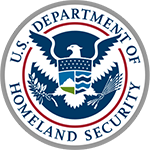Pittsburgh, PA
This workshop will discuss funding options for implementing resilience solutions, including performance contracts, utility partnerships, grants, and unique appropriation options. Instructors will highlight GSA Areawide Public Utility Contracts, resilience tariffs, the Energy Resilience and Conservation Investment Program, and FEMP AFFECT grants. Attendees will explore resilience valuation, identify barriers, and provide feedback on how FEMP could better support federal resilience efforts.
Instructors
Katy Christiansen, Project Manager, National Renewable Energy Laboratory Read Bio
Katy Christiansen is a project manager in the Project Development and Finance Advisory Group at NREL leading resilience and sustainability efforts. Katy's area of expertise includes strategic planning, project development, and analysis for the defense, federal, utility, and non-profit sectors. Her current focus is in resilience analysis for complex organizations and best practices for developing advanced infrastructure systems.
Ethan Epstein, Program Manager, Federal Energy Management Program Read Bio
Epstein, U.S. Department of Energy, Federal Energy Management Program Ethan Epstein is the Program Manager and Technical Lead for the Federal Energy Management Program's (FEMP) resilience program. At FEMP, Ethan works with both the National Renewable Energy Laboratory (NREL) and the Pacific Northwest National Laboratory (PNNL) to provide federal facilities with technical assistance and develop resources and tools focused around energy/water resilience and climate change. This includes developing strategies to integrate various programmatic efforts including but not limited to climate adaptation, mitigation and resilience, decarbonization, resilience quantification, and resilience planning.
Learning Objectives
Upon completion of this course, attendees will be able to:
- Recognize the importance of resilience for federal sites: Identify common resilience solutions and methods to partner with serving utilities to implement resilience measures;
- Identify specific examples of projects with utilities that have successfully implemented resilience measures;
- Recognize the types of allowable savings for performance contracts that can be applied to resilience measures.









